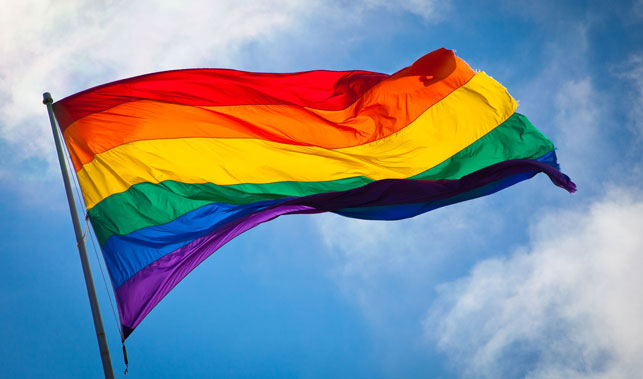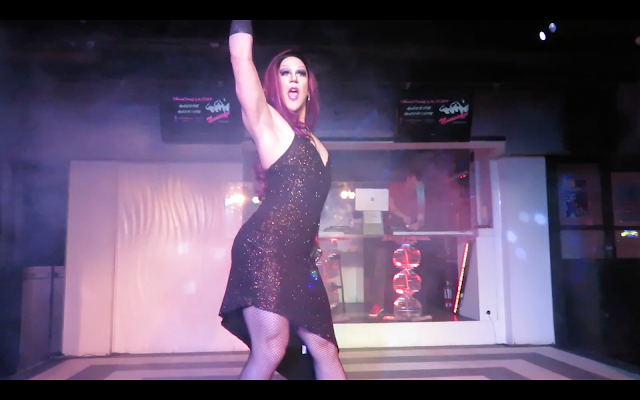Queer Spaces are Open Spaces
In Response to: “Drag shows aren’t free-for-alls for straight women letting loose” by Jaime Woo, published in the Globe & Mail.
Perhaps
the stage is a podium, an altar, and a sacred place for people to display their
artistry to the audiences of the world, and has been for the duration of
history; but if you alienate yourself from all audiences, to whom are you
performing? The piece presented previously does exactly that, in an attempt
to educate readers, the author alienates a large group of people important to
the queer community.
A drag show, like any other show, requires an audience to exist,
and as a performer you want this audience to grow. Your goal is to spread your
art, but if you restrict this growth to within the queer community you prevent
yourself from reaching a potential audience of over 7 billion people. Yes, the
goal of universal acceptance of the queer community is still a distant dream,
but it is still a dream we should constantly pursue. Articles such as these
isolate the queer community from the greater population.
Allowing “straight, white women”, and honestly anybody else to attend drag performances
is the best way to first, have a larger audience see the performances (while
also increasing sales), and second, to spread awareness of the community.
If you want more people to understand the guidelines for
appreciating your art, you need to educate the ones who come, but the way in
which you educate people matters. Aggression, both verbal and physical, has been
used historically to exact change, however these confrontations leave people
battered, bruised, and generally worse for wear.
Education should change the ideas of people in a way that will
encourage them to return, and to share their experiences and knowledge with
others. Education is not meant to make the audience feel affronted as the piece suggests.
This is especially true now, an
era where openness and cooperation between communities is of utmost importance
to the social, mental and physical health of members of the queer community.
In
the aforementioned piece, “straight, white women” are singled out as a group of
people who are unwelcome at queer spaces, namely drag bars. They are depicted
as callous, bratty, physically abusive, and primarily ignorant. These four qualities
describe all purveyors of clubs and bars, especially drunk people. Yes, the
bachelorette party is a particularly onerous example of these traits; however
singling out this group of people is a terrible way of promoting their
inclusion in queer culture. If they are ignorant of queer cultural history and club
guidelines, it is because they were not raised with, or have not experienced the
social norms within which queer culture resides.
The
actions of disrespectful club purveyors are inexcusable, but suggesting that
straight white women are the sole guilty party is wrong. These actions are
present in all communities, at all clubs, and all types of performances.
Disrespect is a universal quality, although it may be more apparent in the
straight, white female purveyor at the gay bar because they seem out of place,
but that’s only because you’re not accepting of them. To quote the original
article: “But you didn’t enjoy being treated that way, so why would you want to
pass that off onto someone else?” This is exactly what the author is
encouraging queer spaces do by alienating the general public, but this mentality promotes both segregation, and exclusion.
The queer community should be leading by example, not resigning itself to
committing the same bigoted mistakes of the greater population. Be inclusive
and accepting of people, even when they are not accepting of you.
Is it really a dilution of queer culture if you include
non-queer people, or is it an expansion, an evolution of queer culture? Queer allies
are generally loved and praised by the queer community, especially those allies
who have helped to build the queer community as it is today. Should their
efforts be looked at as being worth less
than those actions of queer individuals? Proposing that solely queer individuals
were responsible for the growth of queer culture is ignorant of queer history.
The arguments proposed in the author’s piece are contradictory
and do not support the growth of the queer community and its acceptance by the
greater population. In fact, opinions
such as these, trying to keep spaces and cultures separate, are part of the reason
there's so much fear and misunderstanding between communities. Awareness and
openness are the friends of acceptance.



Comments
Post a Comment